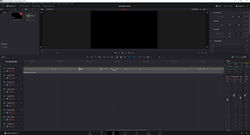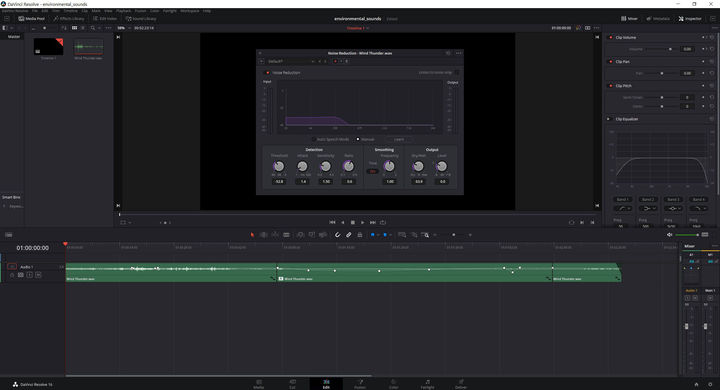

Audio Assets
Audio Creation and Design
 |  |  |
|---|---|---|
 |  |  |
 |  |  |
 |  |  |
 |
Early Planning
At the beginning of this project, I did really know what was achievable towards my current abilities and complete understanding around creating high-quality audio assets. So I decided to research towards learning how sound designers were able to develop specific audio which related to my project.
I found many resources that me with some ideas and inspiration, Such as watching the 'High Score' documentary on Netflix, which spoke about game design and presented many original sound audio assets throughout the documentary.
This made me realize that each audio asset has a particular role to play to immerses the player/users.
I also listen to the 'Game Makers: A Ubisoft Podcast' which explains how they develop various sound effects and cinematic music symphonies development, in some of their popular AAA gaming titles such as 'Ghost Recon Breakpoint' and 'Assassin Creed Series'.
From listening to this podcast introduced many useful techniques and strategies for recreating unique sounds by applying foley design into generating realistic sound assets in my project.
I found that 'DaVinci Resolve' was great software that I've used previously to create video content. I saw that sound designer also use this software to edit and generate soundtracks on and decide to use it instead of audacity, which I've used before previously.
Finding a Locations
At the start of the trimester, I was thinking of the type of locations that I would need to recreate, from a series of high quality and immerse sounds.
Which would establish a great reference point and reducing the total amount of audio mixing, that may have been requiring extra development to reach and achieve my expectations and goals.
So I decided to for returning to Gippsland halfway through the trimester that I could be able to record and start thinking about techniques and environments that I could record.
The Equipment
In terms of the equipment that I use during this stage. I was able to acquire a audio technical At2020 Microphone which was ideal for recording high quality assets.
However I need to find a mobile recording solution to able to use this microphone, due to it needing a device that could power and save the recorded sounds.
So decide to use a lightning to USB camera adapter that was plugged into a the microphone and a 7th Gen apple iPad. This solution work extremely well to achieve clear and dense audio files to further work on.
Creating Audio
After gathering all of the equipment, I reflected upon my audio asset list to seek guidance around creating these assets.
I first started to identify some basic, VR sound effects that focused on the user's interactions, environmental sounds, ambient noises, water sounds, Dinsouar sounds and player walking on gravel sound effects.
All of these fundamental VR audio assets would be able related to my current and future visual asset vision, that depicted a Cretaceous period that involves dinosaurs within a wild forest environment setting.
So I decided to experiment outside my house that's next to a block of land, which is surrounded by a large bush and forest environment that I could access to record these specific sounds effects.
During my time with using the equipment and reviewing my audio asset list, I found many different techniques and skills in the current environment that I was recording around. I discover many future objects sound sequences that could implement into my project.
So I decided to record these sound during this time to build an array of audio tracks which I could transform and edit later throughout the process.
After recording absolutely everything within current equipment and time limitations, I had enough soundtracks to develop.
This process defiantly gave me an extensive and overall understanding of creating sounds and foley design, which I could pursue as a future hobby towards exploring and experimenting around exciting and creative projects.
Sound Design In Resolve
Being able to edit the video's in DaVinci Resolve was a essay process from already knowing some basic sound editing techniques.
Cutting up each clip all need to be complete with also being able to where audio segments started and ended.
This saw me spend a long time listening to each track and organising each individual separation from the original track into it's own audio track sequence.
By doing this provide me the opportunity to further edit this individual sounds to apply noise reduction effects which is a inbuilt feature within resolve. I was also allowed to alter loud spikes level in volume to create a consistent sound level throughout the clip.
Using resolve in the editing screen panel was much easier to read and visual read the wave lengths during the editing process rather than Audacity.
After organizing and editing each clip I had to then export each sound track from the deliver panel. During this process I had to select each track's start and end point to able to render each clip properly.
List of Audio Asset
Dinosaur & Ambient Noise
Water Sounds
Environmental Sound
Player Interacting with Environment
Player Walking on Gravel
Dinosaur & Ambient Noise
Designing the audio around the Dinosaur noise and Ambient Noise was an interesting and challenging process. However, from reviewing my Foley research, I had the mindset of thinking about the current real-world object that could produce these sounds.
Developing the dinosaurs purring sound was an unexpected creation from just squeezing a toilet roll. The inner cardboard roll and soft but thick paper created a rubbing noise that produced an ear-catching sound when amplified on a high quietly microphone.
I though of recording this sound within the environment that could generate an ambient noise effect due to this was the many location in the VR experience. It also saved me time from manually adding in ambient sound onto the track, which I found could be hard to create compare much more natural sound effect.
Click Onto Slideshow Images To Read Full Descriptions For Each Edited Clip
Another unexpected find was stepping on bark on a dead tree to produce a loud chewing noise of a dinosaur or animal crunching on vegetation or possible mixed over a dinosaur eating bony meat that is being crushed inside of a dinosaur's mouth.
Developing the dinosaur footsteps was a fun task. I decide to use a medium-size tree log and hit on the ground at different intervals and forces rates. To be able to create a wide range of unique footsteps for different size dinosaurs and walking rates.
Player Walking on Gravel
Designing audio asset for a player walking on a surface such as gravel was an enjoyable experience. Moving at different speeds on various surfaces is a valve audio technique to create, design and learn. As it is a primary foundation for immersion which most sound designers focuses on in most games or VR experiences for the user. If the audio doesn't match up with the visual and environmental sounds in the scene, then this can distract the user from there experience.
Click Onto Slideshow Images To Read Full Descriptions For Each Edited Clip
Player Interacting with Environment
Thinking about what the player can interact within the finished experiences was a major idea that I through about towards future development. So when I was outside recording sound I decided to interact with my surrounding environment just like my user would in a virtual space. Focus on separating these events by a player interaction with certain objects I thought about the different ways of sound being intuitive with a cause and effect way of thinking. This thought process allowed me to generate a wide series of player interactions. Using a similar environment that you would then simulate in the VR experiences was really fun and exciting. Being able to interact with a physical space introduced many new assets that I wouldn't have considered, by not utilising this environment.
Click Onto Slideshow Images To Read Full Descriptions For Each Edited Clip
Water Sounds
Finding a way to record the water stream was difficult. I'd planned on going to Tarra Bulga national park to record sound high-quality sounds such as rivers and waterfall noises with ambient sound to complement each other. However, due to my workload and schedule with other classes, I found it hard to plan and organize a trip. But I managed to still record three water effects from my outdoor pool at home. This created an opportunity for me to apply some Foley sound effects to simulate theses unique sounds effects.
The First water sound simulates still water which had a slight current from the wind. This audio asset would be applied, onto an environmental object such as a lake or pond.
The second water sound is a water splashing and falling into and water surface such as a waterfall in a small water stream.
The third water asset is water splashing and falling on to a hard surface such as a rock or stone.
Click Onto Slideshow Images To Read Full Descriptions For Each Edited Clip
Environmental sounds
Developing environmental sounds was quite calming and enjoyable. The key was to be quiet and patient to record high-quality sounds. I was fortunate that my back-yard provide many diverse and amazing sound due to the sunny and warm day with a slight wind breeze of air moving the trees and bushes. This meant I was able to still record the lively wildlife from birds and insects moving, flying and passing by the microphone. The final edit of these soundtracks was the most important. Since the user needs to be convinced towards the immersive sound that fills the scene.




































